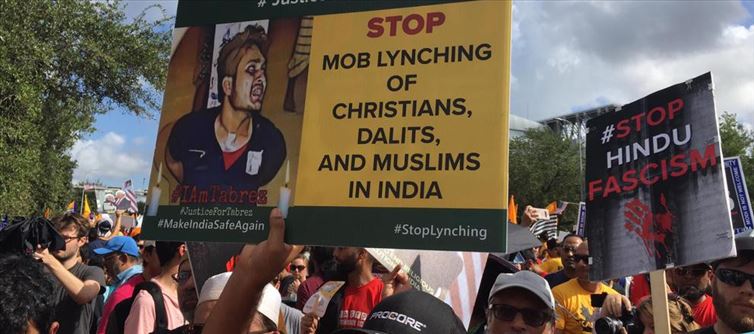
It is important to note that Hindu-Muslim unity is not based on Muslims celebrating diwali or Hindus visiting Dargahs. In addition to trivializing the more serious problems at hand, this reductionist approach misrepresents the actual nature of religious cooperation. While scrolling through Reels, one sees movies that promote cooperation between Muslims and Hindus by encouraging them to participate in one another's religious customs. For example, a Muslim guy selling Hindu idols or a Muslim lady wearing a veil are both examples of this.
These widely shared beliefs, which are frequently supported by romanticized stories, imply that sharing in one another's religious rites is the foundation of concord.
However, I contend that this well-intentioned but erroneous strategy ignores the most important component of promoting peace: respect for each person's freedom to follow their religion freely, free from outside influences or social norms. Giving communities the freedom to practice their faith is the key to unity. Giving people the freedom to practice their religion however they see fit is what unites them, not copying each other's customs. Just as Abdullah shouldn't be forced to celebrate diwali to show his respect for Hindu traditions, rahul doesn't need to offer Eid prayers to show his respect for my faith. The issue is that taking part in religious rites is not and should never be a sign of one's respect or allegiance to another group.
When a reluctance to participate is interpreted as an insult to the other person's beliefs, the problem occurs since these gestures are viewed as required acts of kindness. For example, what if the Muslim woman in the video had refused to attend the Hindu temple festival? She would be immediately labeled as "anti-Hindu" by others. This is the actual gap and a reflection of our inability to understand what religious freedom really means.
It is not about following other people's rituals; rather, it is about having the freedom to follow one's own beliefs without worrying about criticism or being forced to follow someone else's customs. Fundamentally, religious tolerance entails recognizing the limits of each person's religious expression in addition to accepting the presence of other faiths. It is not about creating a uniform society in which everyone adopts the same customs and values. Instead, it's about acknowledging that our diversity are asset and that are peaceful, unhindered practice of our own religions is the foundation of cohabitation.
Systemic measures that deliberately violate religious freedom Let us turn our focus to the true problem, which is the systematic violations of religious freedom that prevent people from practicing their faith in peace, without fear, or with any sacrifice of their dignity. Consider Karnataka's prohibition on the hijab, which deprives Muslim girls of their fundamental right to an education because they wear veils. When they protested, crowds jeered at the young people wearing hijabs and sent them home. This is an outright assault on their individuality, dignity, and, most importantly, their freedom to profess their religion; it is not just about an item of apparel.
When we restrict one of the most fundamental liberties, the ability to dress in accordance with one's beliefs, how can we pretend to be a secular, inclusive country? In a similar vein, the extensive prohibitions on beef in a number of indian states constitute a flagrant infringement on individual liberty. In addition to interfering with dietary habits, the state imposes a uniformity of belief on its inhabitants by limiting the consumption of beef. Although india is one of the world's top exporters of beef, the act of eating it is viewed as a danger to the social fabric in this secular society.
The terrible increase in mob lynchings that occur based just on suspicion of beef sale, slaughter, or consumption—where lives are lost due to unfounded rumors—complicates this inconsistency. Then there is the Uttar Pradesh halal ban, when the state government decided to outlaw the manufacture, distribution, and sale of goods with halal certification. Internationally, halal certification is recognized as a source of fresh meat; nevertheless, in india, the designation is used to propagate false information about what it truly represents and incite hatred against a community's dietary customs. Empty gestures have little meaning. Empty gestures, like sending a Chadar to a Dargah or attending each other's festivals only for show, cannot and should not resolve these problems.
A profound, top-down structural change in India's collective thinking that acknowledges and defends the integrity of religious liberties in their purest form is what the country sorely needs. Accepting one another's beliefs is not the same as religious tolerance. It involves coexisting in our variety and respecting one another's right to be who we are. Since our society is plural, pluralism should not be viewed as a threat to our unity but rather as an integral part of our identity.
Let's acknowledge that honoring these decisions is a basic right, not a compromise. No one should be compelled to give up their beliefs to appease others, nor should they be forced to engage in rituals that are not part of their faith. I wish to live in india like this. Instead of faiths being reduced to symbolic gestures, we should stand together in our variety and say, "You do you, and I'll do me." We won't be able to fully attain unity in diversity until then.




 click and follow Indiaherald WhatsApp channel
click and follow Indiaherald WhatsApp channel